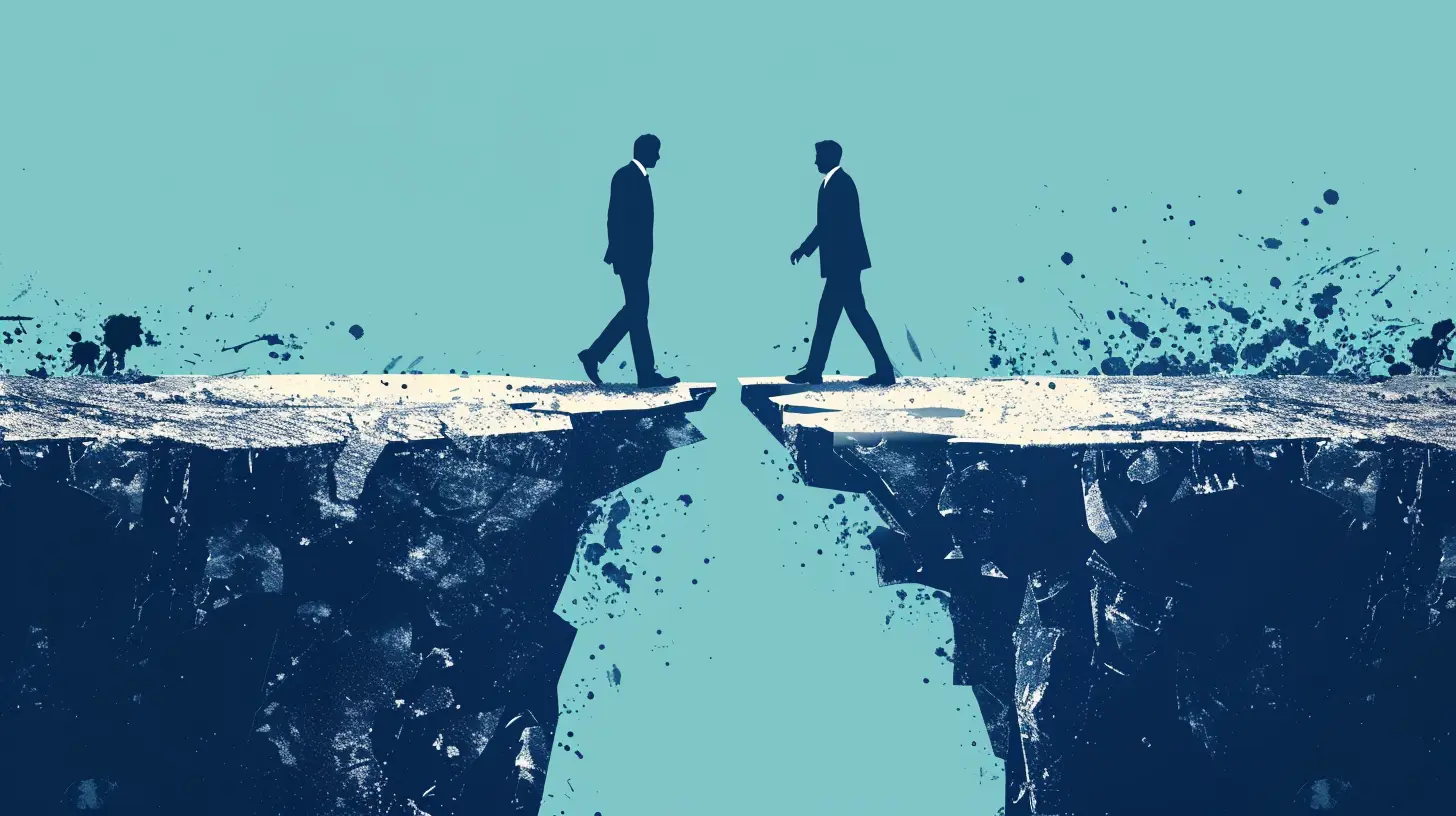Developing Resilience: Bouncing Back from Setbacks
20 August 2025
Life doesn’t always go as planned, right? You study hard for a test and still don’t get the grade you hoped for. Or maybe you applied for what felt like the perfect internship, and someone else got it. Ouch. Those moments sting. But here’s the thing — setbacks are a part of life. What really counts is how you respond to them. That’s where resilience comes in.
Resilience is your ability to bounce back, adapt, and push forward, even when things go south. It doesn't mean ignoring your pain or pretending nothing happened — it means facing challenges head-on and growing stronger through them. So, let’s talk about this superpower called resilience and how you can develop it.

What Is Resilience, Really?
Resilience isn’t about being tough all the time or never feeling sad or frustrated. It’s about having the tools and mindset to recover. Think of it like a rubber band. You can stretch it, twist it, even pull it to its limits — but it snaps back. That’s resilience.We all have different levels of it, and the good news? Resilience isn’t something you're born with or without. It's a skill. It's like a muscle that gets stronger the more you use it. The more you work on it, the more prepared you are when life throws a curveball (and trust me, it will).

Why Is Resilience So Important?
Well, here’s the deal — life is unpredictable. There’s no roadmap that guarantees smooth sailing. Without resilience, it’s easy to get stuck in setbacks, spiraling into self-doubt or giving up altogether. With resilience, though? You process the disappointment, learn from it, and keep moving forward.It’s not just about surviving challenges — it’s about thriving in spite of them. When you build resilience, you’re better equipped to handle academic stress, personal losses, relationship problems, and a whole range of tough stuff life dishes out.

Common Misconceptions About Resilience
Let’s bust a few myths while we’re here:- "You either have it or you don't."
False. Resilience can be built. Like learning to ride a bike, it takes practice.
- "Being resilient means never asking for help."
Nope. In fact, recognizing when you need support is a huge part of being resilient.
- "Resilient people don’t feel emotions."
Not true. They feel everything — they just know how to manage those emotions in healthy ways.
Now that that’s cleared up, let’s dive into how you can start building your resilience muscle.

Step 1: Reframe Setbacks as Opportunities
Let’s say you failed a test. It feels awful. But instead of seeing it as the end of the world, what if you looked at it as feedback? Maybe you need a different study method. Maybe you didn’t understand the material as well as you thought. Either way, there’s a lesson in there.Reframing means shifting your perspective. Instead of asking, “Why is this happening to me?”, try asking, “What can I learn from this?” That one change can work wonders for your mindset.
Step 2: Embrace a Growth Mindset
Here’s where mindset really makes a difference. People with a fixed mindset believe that their talents, intelligence, and abilities are set in stone. Those with a growth mindset believe they can improve with effort and time.Say you’re struggling with math. A fixed mindset says, “I’m just bad at math.” A growth mindset says, “I’m not great at math yet — but I can get better.”
See the difference? That tiny word — yet — holds power.
Step 3: Strengthen Your Emotional Awareness
You can’t bounce back from setbacks if you don’t know what you’re feeling. It’s tough to heal from a wound you won’t even look at. So check in with yourself.Ask:
- What emotions am I feeling right now?
- Where is this emotion coming from?
- What do I need to feel better?
Being able to name your emotions helps you process and manage them better. Journaling can help. Talking to a friend or therapist works, too.
Step 4: Build a Support System
Think about your go-to people. You know — the ones you call or text when things go sideways. Having a circle of trusted friends, family, or mentors makes a huge difference.Resilient people don’t isolate themselves. They lean on others. Even superheroes have sidekicks! So don’t be afraid to reach out when you need help. Connection is one of the strongest foundations of resilience.
Step 5: Practice Self-Compassion
Be real with me for a second — do you beat yourself up when things go wrong? Most of us do. But here’s a little secret: being hard on yourself doesn’t help you bounce back faster. In fact, it slows you down.Self-compassion means treating yourself with the same kindness and understanding you’d offer a friend. Talk to yourself gently. Don’t say things like “I’m such a failure.” Instead, try, “This was tough, but I did my best. I’ll get through it.”
It’s not about making excuses — it’s about giving yourself grace while you learn and grow.
Step 6: Set Small, Realistic Goals
Big goals are exciting, but they can also be overwhelming. When you’re recovering from a setback, starting small makes the journey feel manageable.Let’s say your goal is to ace your next exam after a poor performance. Instead of jumping straight into studying for hours, break it down:
- Review notes for 15 minutes a day
- Join a study group
- Ask the professor for feedback
Each small win builds confidence and momentum.
Step 7: Celebrate Progress (Even the Tiny Wins)
You got out of bed and faced the day after a really bad week? That’s progress. You asked for help when you needed it? Huge win. You didn’t get the internship, but you applied and tried your best? That’s courage.Resilience isn’t just about the big bounce-back stories. It’s about the little moments where you choose to keep going. Recognize those. Celebrate them. You’re doing better than you think.
Step 8: Take Care of Your Body and Mind
Physical health and mental resilience are deeply connected. You can’t expect to feel emotionally strong if you’re running on three hours of sleep and junk food.Simple self-care matters:
- Get decent sleep
- Move your body, even just a walk
- Eat nourishing food
- Practice mindfulness or meditation
Taking care of your body gives your brain the fuel it needs to cope and recover.
Real-Life Examples of Resilience
Let’s make this real for a second. You’ve probably heard of people like Oprah Winfrey being fired early in her career, or J.K. Rowling being rejected by multiple publishers. They didn’t give up. They learned, adapted, and came back stronger.But resilience isn’t just about famous people. Think of a single parent balancing work and school. Or a student reapplying after being rejected from their dream college. Or you — yes, you — getting back on your feet after a rough patch. That’s the heart of resilience right there.
When to Seek Professional Help
Building resilience is powerful, but it doesn’t mean you have to do it all alone. If a setback feels too heavy or lasting — like ongoing sadness, anxiety, or hopelessness — talk to a mental health professional. Getting help is a sign of strength, not weakness.Therapists, counselors, and support groups can guide you through tough times and give you tools to boost your resilience even further.
Final Thoughts: You’ve Got This
Here’s the honest truth: setbacks are inevitable. But resilience? That’s a choice. It’s choosing to get up one more time, to grow from the pain, and to believe that your story isn’t over because of one tough chapter.You’re not alone in this. Every struggle, every stumble — they’re shaping you into someone stronger, wiser, and more capable.
So the next time life knocks you down, take a deep breath. Stand back up. And remind yourself: “I can bounce back.”
Because you absolutely can.
all images in this post were generated using AI tools
Category:
Skill DevelopmentAuthor:

Bethany Hudson
Discussion
rate this article
1 comments
Wade McAlister
Every setback is a setup for success!
September 12, 2025 at 4:38 AM

Bethany Hudson
Absolutely! Setbacks provide valuable lessons that can strengthen our resilience and pave the way for future success.


